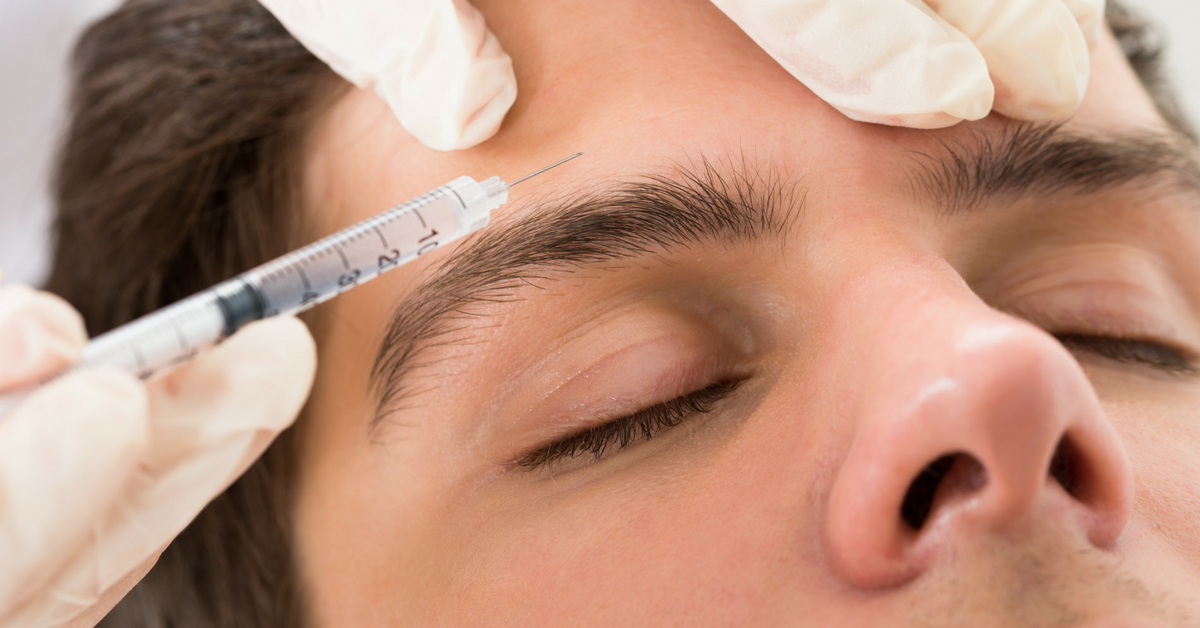
JODIE E. & Dr. John Harrison
SUNDAY, MARCH 11, 2018
Botox & Cannabis: Friends or Foes?
DOES CANNABIS BLOCK THE EFFECTS OF BOTOX? WE ASKED A NEUROSCIENTIST!
Hello Buds!
We had a lively discussion recently about Medical Cannabis and Botox. A member was told by her doctor that she is not a good candidate for medical marijuana because it will block the effects of her Botox treatments. This sparked confusion and concern in our Community. Many of us know that this is not accurate – either from personal experience or from our own doctors. But most of us do not possess the knowledge to explain why.
How does Botox work? Could cannabis render this expensive and unpleasant treatment useless?? Is this why Botox stopped working/never worked for me?
To answer these difficult questions we checked in with the brilliant Dr. John Harrison, who holds a PhD in Neuroscience and has a special interest in the Endocannabinoid System. He would like me to make it clear that he is not a medical doctor or a neurologist. He is however an expert in brain-stuffs (my own scientific term) and he took the time to look into this on our behalf!
A Message to MigraineBuds from Dr. John: I’ve been seeing posts on here discussing Botox as a treatment for chronic migraine, and there seems to be confusion as to its mode of action in alleviating migraine systems – for those people in whom it does give some symptom relief. I need to state at the outset that I’m not a medical doctor or migraine expert; however, I have a PhD in neuroscience and have worked extensively with botulinum toxins in my research and can definitely shed some light on what they do and what they are thought to do with respect to migraine symptom alleviation.
Migraine is a neurovascular disorder associated with dysfunction of the cerebral nerves and blood vessels. Some prevailing theories state that migraine-specific triggers cause changes in the brain, probably in brainstem centres important in regulating vascular tone and pain sensation, which can cause abnormal stimulation of the sensory fibers of the face, which originate from the trigeminal nerve. Simply put, this stimulation of the trigeminal nerves can result in the local release of neuropeptides. The triggered release of these neuropeptides (such as calcitonin gene-related peptide (CGRP)) are believed to be involved in the initiation and extent of neuropathic inflammation and pain resulting in symptoms associated with migraine. The rationale for the use of botulinum toxin (Botox) for the treatment of migraines is that it stops the release of these peptides.
Local injection of Botox results in its transport into nerve terminals, where Botox specifically cleaves and renders useless proteins that are absolutely required for the triggered release of all neurotransmitters, including these neuropeptides. So if the hypothesis is correct that these neuropeptides are involved in migraine, blocking their release should alleviate migraine symptoms to some extent. Also, the proteins that Botox cleaves are involved in the transport of cell surface receptors that are also thought to be involved in migraine. Botox is highly efficacious, or in another words – it always works. If it binds to its protein substrate, it will always cut that protein and make it useless. Therefore, if Botox has been administered properly and is still not giving symptom relief, it is not because botox is not working, it is because stopping neuropeptide release from the trigeminial nerves (or affecting cell surface receptor insertion) is not the cause, or only cause of the migraine symptoms in a particular patient.
There are two general reasons why Botox can stop working after initially being efficacious. The body can develop anti-bodies to Botox which interferes with its functioning. Another reason that Botox can stop working can be because that the migraines have changed in character, severity or are being caused by a new problem. And on a final note, cannabis does not directly affect Botox function. Botox has a very very high affinity for its target protein and only binds this protein. Furthermore, cannabinoids are lipids (fats) not proteins.
I hope this is somewhat helpful. I have obviously vastly simplified the complex interplay between all the neuronal and molecular components that are dynamically involved in this process, but I hope that it conveys enough information to be of some use.
 How lucky are we to have this written just for us!?
How lucky are we to have this written just for us!?
If you found this helpful, please join us in thanking Dr. John for his time! – MigraineBuds